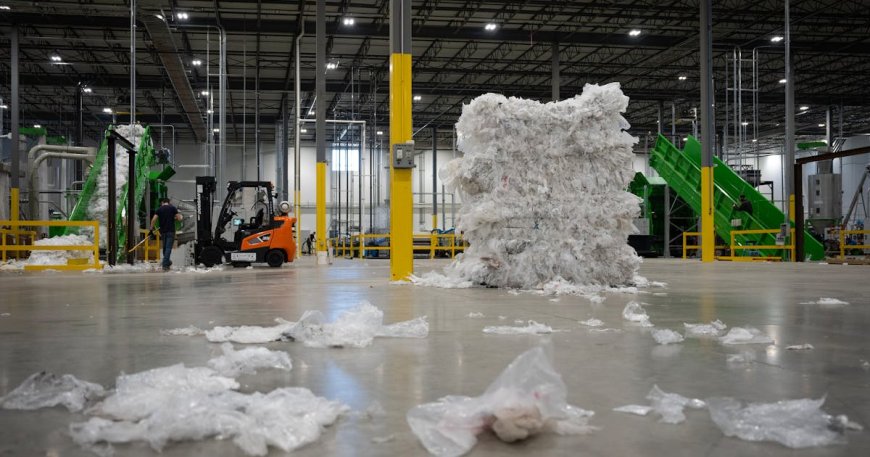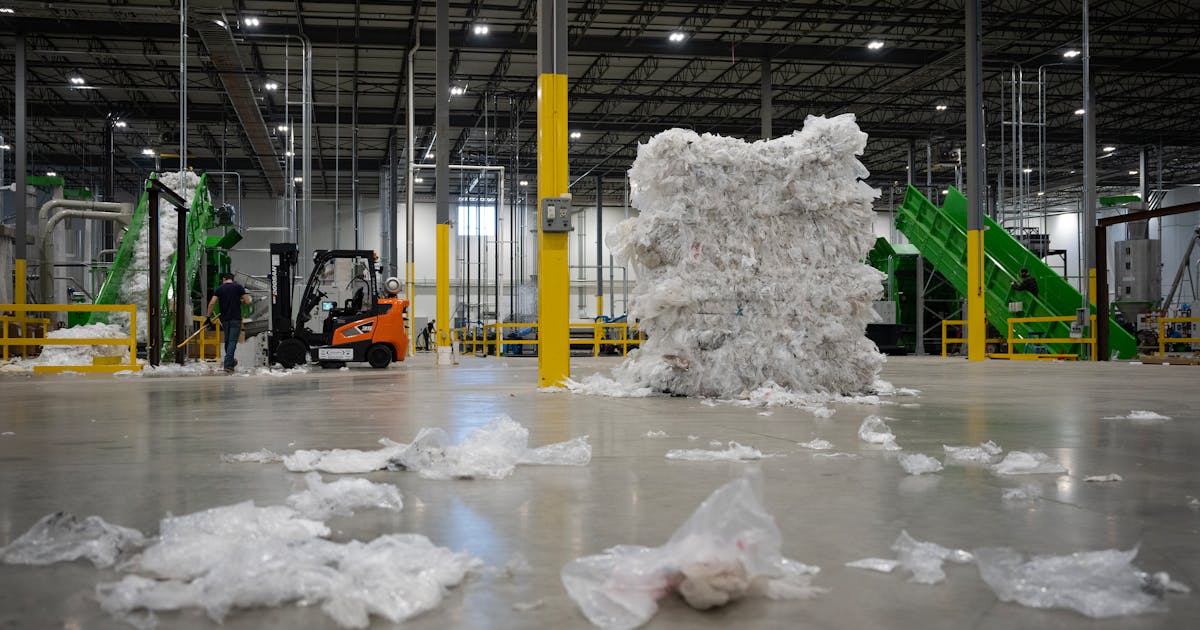Minnesota’s struggling Myplas plastic film recycler facing eviction for $1.3 million in unpaid rent, bills
Minnesota's struggling Myplas plastic film recycler facing eviction for $1.3 million in unpaid rent, bills Star Tribune

Plastic Film Recycling Company Faces Financial Challenges

A plastic film recycling company that opened the first facility of its kind in Minnesota last year has not paid any rent so far in 2024, according to a lawsuit filed this week.
Unpaid Rent and Liens
- Myplas USA owes more than $389,000 in unpaid rent on its 160,000-square-foot industrial space in Rogers, according to the suit.
- An electrical contractor also filed an $895,000 lien for unpaid bills last month.
Possible Eviction
The building’s landlord is asking a judge to evict Myplas from the business park on Diamond Lake Road for failing to come up with the rent or settle the lien.
Financial Challenges and Operational Changes
After celebrating the grand opening of the $30 million recycling plant in December, Myplas furloughed staff and shut down machinery earlier this year. The chair of the company’s board, Peter Shippen, said in February that Myplas is “exploring management and operational changes.”
“Myplas USA unexpectedly ran into financial challenges shortly after the launch of operations in Minnesota,” Shippen said Thursday. “The board continues to actively pursue opportunities to resume operations under a different structure. Given the current status of the business, we understand that various parties need to take steps to protect their interests.”
Website Offline and Change in Structure
Nearly every page of the Myplas USA website went offline last month.
MBOLD, the Minnesota business collective that championed the project and gathered investors but has no oversight of Myplas operations, said in a statement the facility “will not operate under its original structure.”
Commitment to Sustainable Development Goals
The group — which counts General Mills, Schwan’s, Ecolob, Cargill and Target among its members — had promoted the idea of a “circular economy” that would take single-use plastic films and bags and cultivate demand for the recycled products coming out the other end.
“We remain committed to our vision for a circular economy for flexible films in the Upper Midwest,” MBOLD said in a statement. “We look forward to advancing a circular economy as part of our broader mission to bring Minnesota’s food and agriculture leaders together and accelerate solutions to global sustainability challenges.”
Investments and Participants
The corporations had invested a combined $9 million into the project. Many other major Minnesota firms pledged to look into ways to support the plastic recycling effort.
MBOLD, at some point this year, took down an announcement listing many participants in the project, which included Allina Health, Hormel Foods, Marvin and Mortenson.
Financial Challenges from the Beginning
Financial challenges beset the project from the beginning. The first announced price tag of $24 million for the Myplas facility rose 25% by the time it opened.
Reached on LinkedIn after the facility had gone quiet, former Myplas USA CEO Andrew Pieterse said in February: “This was never going to be easy, a lot happening in the background.”
SDGs, Targets, and Indicators
1. SDGs Addressed or Connected to the Issues Highlighted in the Article:
- SDG 12: Responsible Consumption and Production
- SDG 17: Partnerships for the Goals
2. Specific Targets Based on the Article’s Content:
- SDG 12.5: By 2030, substantially reduce waste generation through prevention, reduction, recycling, and reuse.
- SDG 17.16: Enhance the Global Partnership for Sustainable Development, complemented by multi-stakeholder partnerships that mobilize and share knowledge, expertise, technology, and financial resources.
3. Indicators Mentioned or Implied in the Article:
- Unpaid rent of more than $389,000 and unpaid bills of $895,000 indicate financial challenges faced by Myplas USA, which can be used as indicators of progress towards reducing waste generation (SDG 12.5).
- The involvement of corporations like General Mills, Schwan’s, Ecolob, Cargill, and Target, as well as the investment of $9 million into the project, demonstrate multi-stakeholder partnerships and mobilization of financial resources (SDG 17.16).
Table: SDGs, Targets, and Indicators
| SDGs | Targets | Indicators |
|---|---|---|
| SDG 12: Responsible Consumption and Production | Target 12.5: By 2030, substantially reduce waste generation through prevention, reduction, recycling, and reuse. | – Unpaid rent of more than $389,000 and unpaid bills of $895,000 indicate financial challenges faced by Myplas USA, which can be used as indicators of progress towards reducing waste generation. |
| SDG 17: Partnerships for the Goals | Target 17.16: Enhance the Global Partnership for Sustainable Development, complemented by multi-stakeholder partnerships that mobilize and share knowledge, expertise, technology, and financial resources. | – The involvement of corporations like General Mills, Schwan’s, Ecolob, Cargill, and Target, as well as the investment of $9 million into the project, demonstrate multi-stakeholder partnerships and mobilization of financial resources. |
Behold! This splendid article springs forth from the wellspring of knowledge, shaped by a wondrous proprietary AI technology that delved into a vast ocean of data, illuminating the path towards the Sustainable Development Goals. Remember that all rights are reserved by SDG Investors LLC, empowering us to champion progress together.
Source: startribune.com

Join us, as fellow seekers of change, on a transformative journey at https://sdgtalks.ai/welcome, where you can become a member and actively contribute to shaping a brighter future.







